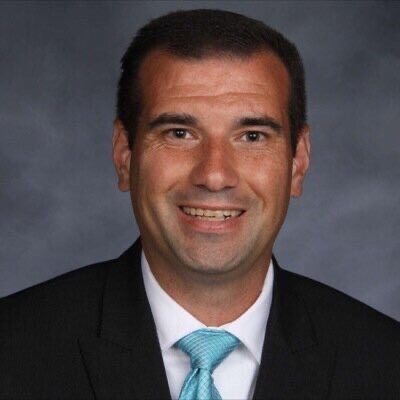
The State of Ohio, where I’ve taught my entire career, is not unique. Students in certain classes that the state considers essential are subject to end of course exams. Student performance on these standardized assessments are a key ingredient in their instructor’s evaluation. If you teach one of those classes, you’re hopefully all about progress monitoring. The last thing you want is to get a terrible surprise when your student’s performances materialize. Throughout the semester, you want to make darned sure your kids are on track.
I was one of those teachers, however, that did not have a state-mandated end of course exam. I taught electives. In Ohio, the alternative for teachers who teach electives is for them to complete an SLO–which stands for Student Learning Objective. You were asked to demonstrate with data that your students grew during your class. Sadly, and I feel badly confessing this, this requirement was a bit of a joke. All you had to do was to give a really hard preassessment. The students would struggle on this benchmark and then do much better on their finals. It was therefore easy to demonstrate with data student growth.
As a consequence, and once again I’m not proud to admit this, I didn’t do much progress monitoring in my elective classes. I felt really guilty about my past efforts when I began teaching assessment to college students. I was upfront about my slacker efforts in the past and I then became passionate about encouraging my future educators to frequently monitor student progress regardless of their curriculum.

To help in this endeavor, I brought in a guru. Ryan McLane was a high school social studies teacher, the principal at a middle school, the principal of an intermediate building, and now he’s an elementary principal and the district director of special education. He’s also the author of Your School Rocks. He’s observed, managed, and conducted progress monitoring at various levels and in diverse subjects. He also does a magnificent PD on progress monitoring. My students loved his presentation, but more importantly, they felt empowered. They’re now anxious to answer the following questions in their upcoming job interviews:
- How do you know if students are learning?
- What are you going to do for those who struggle?
These are important questions for any teacher–particularly if you teach an elective. Ryan will talk in this episode about how elective teachers can become progress monitoring officinados. And before you start wondering, This is a podcast on engagement. What does progress monitoring have to do with that? Stay tuned. Ryan is all about engagement. He’s going to explain how you can take a concept that seems dry and clinical–progress monitoring, and make it engaging and empowering for students and teachers.
Episode Template
The Problem:
Teachers in classes where there aren’t end of course exams are not doing enough progress monitoring.
The Solution:
Teachers in such courses should independently embrace and administer progress monitoring.
What you can do Tomorrow:
- Approach your administrator and ask for guidance in implementing progress monitoring.
- Choose a unit that will act as your trial balloon.
- Determine what skills or information students should master during the unit.
- Decide how and how frequently you’ll monitor progress.
- Explore ways to enhance student involvement in the monitoring process to make the experience more engaging.
As a teacher, you have an obligation to ensure student learning. Progress monitoring offers proof!
[spreaker type=player resource=”episode_id=21582394″ width=”100%” height=”200px” theme=”light” playlist=”false” playlist-continuous=”false” autoplay=”false” live-autoplay=”false” chapters-image=”true” episode-image-position=”right” hide-logo=”false” hide-likes=”false” hide-comments=”false” hide-sharing=”false” hide-download=”true”]